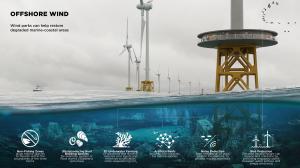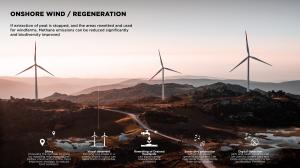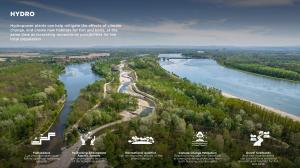The electricity industry has the means to reduce the ecological loss and go even further: restore nature.
BRUSSELS, BELGIUM, June 16, 2022 /EINPresswire.com/ -- 81 % of EU habitats have been severely deteriorated by unsustainable activities. This alarming reality is intrinsically linked to climate change: according to world leading climate and biodiversity experts, greenhouse gas emissions will become the leading driver for
ecological loss and agricultural disruptions. Another future is however possible, says “Power Plant” a new report, released by Eurelectric today.Kristian Ruby, Secretary General of Eurelectric, said:
“Climate change and biodiversity loss can be tackled simultaneously. Our industry has the means to reduce the ecological loss and go even further: restore nature. This is also a call to remove all barriers to speed and scale up the deployment of renewable power plants.”
Integrated renewable energy projects, which restore degraded ecosystems and remove CO2 emissions, bring a multitude of benefits, including:
• Reviving landscape in degraded areas, like peatlands and coal mines;
• Revegetating desertified land, through solar shading;
• Allowing sustainable food and energy production, by deploying agri-photovoltaics above crops;
• Creating jobs and revenues.
Kristian Ruby added:
“Electrification, supported by massive renewable and clean power deployment, can break the degradation cycle and contribute to biodiversity regeneration. We need transformative efforts at a scale that has never been attempted before.”
Around 500 GW of new renewable capacity is needed, equal to about half of existing European total generation capacity, to cut EU CO2 emissions by 55% by 2030. Yet, the average permitting time for new installations is four to six years. This fundamentally prevents Europe from efficiently tackling the twin climate and biodiversity crises.
Power Plant was developed with a path-breaking methodology seeking to transcend traditional boundaries between professional disciplines. Consulting a broad range of stakeholders from academia and civil society, the report was developed with the help of the internationally acclaimed architect firm EFFEKT, which specialises in sustainable architecture and spatial planning.
Based on satellite images and engineered visualisations, the report defines a new integrated approach combining renewable deployment with regenerative biodiversity and innovative climate-friendly resource management practices. Building on identified barriers and best practices, it elaborates cross-cutting recommendations that mitigate the impacts of climate change, while ensuring biodiversity and energy security.
We call on the European Commission to prioritise projects simultaneously addressing these challenges by:
1. Accelerate permitting for integrated, net positive renewable projects and developing low-impact spatial planning assessment.
2. Encouraging the combination of integrated energy and agricultural production through changes in the Common Agricultural Policy.
3. Establishing economic rewards or incentives to accelerate investments in low-risk, integrated projects.
4. Increasing public support for renewables by encouraging co-ownership programmes, publicising benefits and providing early information.




No comments:
Post a Comment